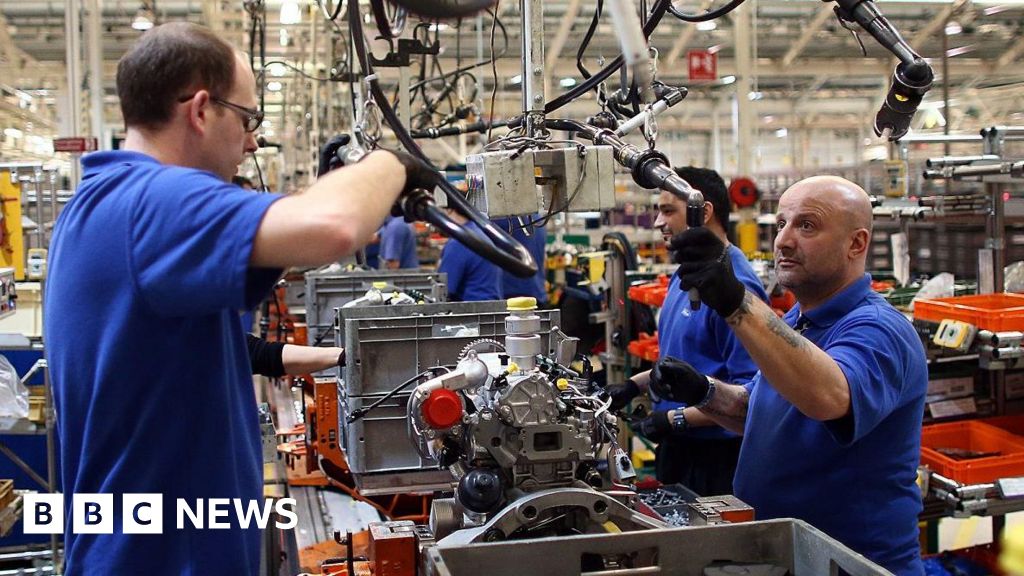The government is to unveil a new plan for trade aimed at boosting exports and protecting UK firms at a time of growing uncertainty for businesses following the introduction of US tariffs. It aims to remove obstacles for UK businesses selling abroad while also bolstering the country's trade defences to avoid the threat of cheap imports undercutting domestic companies. Some sectors are concerned that cars and steel originally destined for US markets will be diverted onto UK shores, as President Donald Trump's tariffs make it significantly more expensive to sell in America. But Business Secretary Jonathan Reynolds said the UK's plan would "ensure British businesses are protected from harm". The plan will be announced during the annual British Chambers of Commerce (BCC) conference in London on Thursday. A unilateral trade strategy could be difficult to achieve – it is a game of international give and take and the plan is more about sharpening offence and defence. One offence strategy outlined is that there will be more government financial backing for exporters, and help understanding complex trade rules. But the key part for many is defence, in particular for industries such as steel and cars. Unlike the EU, the UK has not imposed high tariffs on Chinese-made electric vehicles and current safeguards against cheap steel imports are due to expire in 2026. An influx of Chinese made cars would make it difficult for UK sellers to compete. At the conference, the government is expected to announce increased focus on boosting the UK's export of services, and point to recent successes in signing a free trade agreement with India after years of wrangling. It will also point to closer trading ties with the EU and being the first country to secure better terms with the Trump White House on tariffs. At the start of his second time as president,Trump announced a series of import taxeson goods from other countries, arguing they will boost American manufacturing and protect jobs. He argues that America has been taken advantage of by "cheaters" and "pillaged" by foreigners. However, Andrew Opie of the British Retail Consortium, which represents retailers, said that though the UK's trade deals were good, the bigger win for consumers would be "swift action" by the chancellor on abuse of the "de minimis" rule, which allow low-value packages to enter the UK tax-free. Use of such rules has surged in the past decade. Intended for consumers buying goods for personal use from abroad, some businesses have used it to avoid paying tax on their goods. There has been criticism they have givenoverseas firms such as Shein and Temu an unfair advantage over British businesses. Mr Opie said "the limited checks and balances on such goods entering the country put consumers at risk from products that do not meet the UK's high standards, and retailers at risk from competition by those who would sell such goods". The trade plan comes after thegovernment unveiled its 10-year industrial strategy, which included a blueprint of lowering energy costs for thousands of businesses by exempting them from some green energy taxes. Ministers hope that after dropping a tax bombshell on business last autumn- leading to higher costs including employer National Insurance contributions- firms see this summer of strategies as proof that the government is on their side.
UK firms to be protected from cheap imports
TruthLens AI Suggested Headline:
"UK Government Introduces Trade Strategy to Support Domestic Firms and Exports"
TruthLens AI Summary
The UK government is set to introduce a new trade strategy aimed at enhancing exports and safeguarding domestic firms amid rising uncertainties stemming from US tariffs. This initiative seeks to eliminate barriers that hinder UK businesses from exporting while also reinforcing trade defenses to protect against the threat of cheap imports that could undercut local companies. There are concerns, particularly in the automotive and steel sectors, that products originally intended for the US market may be diverted to the UK due to increased costs associated with tariffs imposed by President Donald Trump. Business Secretary Jonathan Reynolds emphasized that the government's plan is designed to protect British businesses from these external threats. The announcement will take place during the British Chambers of Commerce (BCC) conference in London, highlighting the government’s commitment to both offensive and defensive trade strategies.
Key components of this trade plan include increased government financial support for exporters and assistance in navigating complex trade regulations. A significant focus is placed on defensive measures, especially for industries like steel and automotive, which are currently vulnerable to competition from cheaper imports. Unlike the European Union, the UK has not implemented high tariffs on Chinese-made electric vehicles, and existing safeguards on cheap steel imports are set to expire in 2026, raising concerns about fair competition. The government also plans to boost the export of services and point to recent achievements, such as a free trade agreement with India. However, retail representatives have called for immediate action on the misuse of the 'de minimis' rule, which allows low-value goods to enter the UK tax-free, arguing that it provides unfair advantages to overseas businesses. This trade strategy follows the government's previous 10-year industrial plan aimed at reducing energy costs for businesses, showcasing the government's dedication to supporting the UK business landscape after implementing controversial tax increases last autumn.
TruthLens AI Analysis
You need to be a member to generate the AI analysis for this article.
Log In to Generate AnalysisNot a member yet? Register for free.
